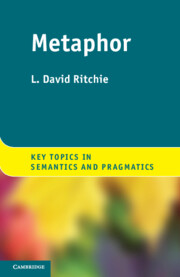Book contents
- Frontmatter
- Contents
- Figures
- Acknowledgments
- 1 Introduction
- 2 Understanding metaphors
- 3 Categorization and relevance
- 4 Conceptual metaphors
- 5 Perceptual simulation
- 6 Metaphors and framing effects
- 7 Language play
- 8 Metaphors in conversation
- 9 Metaphors in politics
- 10 Metaphors in literature
- 11 Closing reflections
- Glossary
- Bibliography
- Index
6 - Metaphors and framing effects
Published online by Cambridge University Press: 05 February 2013
- Frontmatter
- Contents
- Figures
- Acknowledgments
- 1 Introduction
- 2 Understanding metaphors
- 3 Categorization and relevance
- 4 Conceptual metaphors
- 5 Perceptual simulation
- 6 Metaphors and framing effects
- 7 Language play
- 8 Metaphors in conversation
- 9 Metaphors in politics
- 10 Metaphors in literature
- 11 Closing reflections
- Glossary
- Bibliography
- Index
Summary
[T]here you are, the British people, thinking: you’re not listening and I think: you’re not hearing me. And before you know it you raise your voice. I raise mine. Some of you throw a bit of crockery. And now you, the British people, have to sit down and decide whether you want the relationship to continue.
(Blair, 2005)Researchers working in several traditions have adopted a common metaphor for various ways in which language can affect communication, referring to a particular way of thinking about a topic or a social interaction as a ‘frame’ and the process of using words and phrases to establish a particular way of thinking about a topic or a social interaction as ‘framing.’ Some writers use frame more or less as a synonym for cognitive schema, but more frequently frame refers to a pattern of language use.
In the passage quoted above, Tony Blair used a metaphorical story to frame the disagreements within the Labour Party as a domestic dispute, with the implication that these disagreements were not necessarily to be taken seriously. “Some of you throw a bit of crockery” frames the criticisms of his policies in terms of comic violence. The entire “throwing crockery” story frames the situation as one in which the decision about the future relationship rests entirely with “the British people” (the ‘wife’ in the story) – and the ‘husband,’ Tony Blair, has no responsibility to change his own behavior or adjust his policies.
- Type
- Chapter
- Information
- Metaphor , pp. 106 - 120Publisher: Cambridge University PressPrint publication year: 2013
- 1
- Cited by



